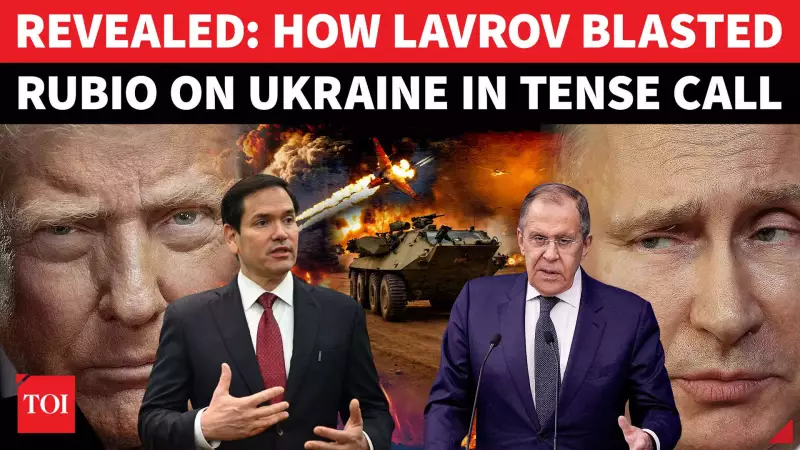
In a dramatic turn of events that has sent shockwaves through international diplomatic circles, a highly anticipated meeting between former US President Donald Trump and Russian President Vladimir Putin in Budapest was abruptly called off following a tense telephone confrontation between top diplomats.
The Diplomatic Showdown That Changed Everything
According to exclusive sources familiar with the matter, Russian Foreign Minister Sergey Lavrov and US Senator Marco Rubio engaged in what insiders describe as a "heated exchange" that ultimately torpedoed the planned high-stakes summit. The conversation, which took place amid delicate preparations for the Trump-Putin meeting, revealed fundamental disagreements that proved insurmountable.
Russia's Unyielding Position
Multiple diplomatic sources confirm that Russia made it unequivocally clear during the discussions that Moscow would not compromise on key strategic interests. The Lavrov-Rubio call exposed the deep fissures in US-Russia relations that continue to define the geopolitical landscape.
"Russia won't back off" became the defining theme of the exchange, with Lavrov articulating Moscow's firm stance on several critical international issues. This uncompromising position, combined with Rubio's equally firm response, created an impasse that made the planned Trump-Putin meeting untenable.
Budapest: The Scuttled Venue
The Hungarian capital, Budapest, had been selected as a neutral ground for what would have been a significant diplomatic engagement. The city, with its historic bridges spanning the Danube and reputation as a bridge between East and West, seemed the perfect setting for what many hoped would be a thaw in US-Russia relations.
However, the diplomatic groundwork necessary for such a high-profile meeting collapsed under the weight of the fundamental disagreements exposed during the Lavrov-Rubio conversation. The cancellation represents another setback in the complex relationship between the two nuclear powers.
Broader Implications for International Relations
The failed summit attempt underscores several critical realities in contemporary global politics:
- Persisting tensions between Washington and Moscow continue to shape major diplomatic initiatives
- Personal diplomacy between leaders faces significant structural constraints
- Congressional influence remains a powerful factor in US foreign policy formulation
- Russia's strategic consistency demonstrates Moscow's unwillingness to bend on core security interests
This development comes at a time when multiple global crises demand coordinated international responses, yet major power rivalries continue to complicate diplomatic efforts. The cancelled Budapest meeting serves as a stark reminder that despite changes in administration and personnel, certain fundamental geopolitical divides remain deeply entrenched.
As diplomatic channels continue to operate at various levels, the question remains whether future attempts at high-level engagement will face similar obstacles or if new approaches can bridge the enduring gaps between these global powers.






